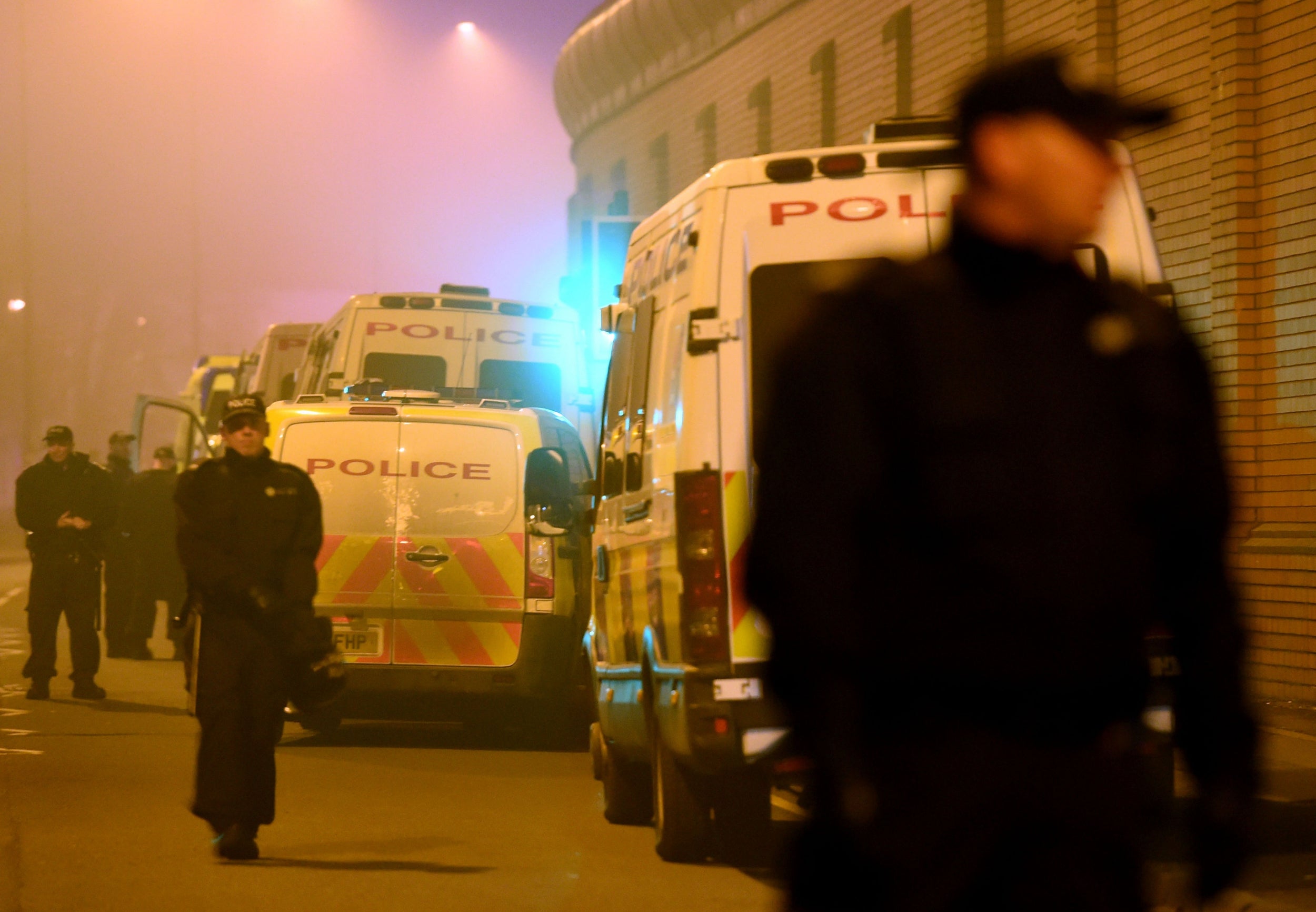Birmingham prison: The litany of failures that forced government to take over jail from G4S
Inspectors were told it was 'easy to get drugs' by half of the prisoners surveyed, with one in seven claiming they became addicted to drugs while in jail

Your support helps us to tell the story
From reproductive rights to climate change to Big Tech, The Independent is on the ground when the story is developing. Whether it's investigating the financials of Elon Musk's pro-Trump PAC or producing our latest documentary, 'The A Word', which shines a light on the American women fighting for reproductive rights, we know how important it is to parse out the facts from the messaging.
At such a critical moment in US history, we need reporters on the ground. Your donation allows us to keep sending journalists to speak to both sides of the story.
The Independent is trusted by Americans across the entire political spectrum. And unlike many other quality news outlets, we choose not to lock Americans out of our reporting and analysis with paywalls. We believe quality journalism should be available to everyone, paid for by those who can afford it.
Your support makes all the difference.HMP Birmingham, one of the UK’s largest jails, has played host to rapidly rising drug-fuelled violence and serious disorder in recent years, forcing the government to step in and take back control of the embattled privately-run prison from G4S.
Following the latest inspection, the Chief Inspector of Prisons raised the "significant concerns" about the state of HMP Birmingham, prompting Peter Clarke to issue an urgent notification to the government, warning it had "slipped into crisis" following a "dramatic deterioration" in the last 18 months.
Inspectors revealed multiple cases of "appalling bullying" with prisoners found to be squirting urine or throwing faeces through broken observation panels at other inmates, a vulnerable man was discovered sat on the springs of his bed in the absence of a mattress which had been stolen days earlier, while another prisoner - who was struggling with issues around personal hygiene - had been repeatedly sprayed with water from a fire hose by other inmates, soaking him and his possessions.
The prison's Independent Monitoring Board has previously reported overcrowding in the prison with inmates enduring cramped conditions in cockroach and rat infested cells.
A June 2017 inspection found there was too much fighting on wings, often triggered by easy access to "problematic" new psychoactive substances, with many inmates feeling "unsafe" behind bars.
Inspectors were told it was "easy to get drugs" by half of the prisoners surveyed, with one in seven claiming they became addicted to drugs while in the jail.
Mobile phones and drones were used to arrange and deliver contraband, such as the highly addictive Spice, among other drugs, contributing to a climate where drug-taking was commonplace.
In April 2018, inmates live-streamed themselves in footage which appeared to show them relaxing while smoking drugs and using mobile phones.
Nine cars were set alight during an arson attack on the staff car park earlier this month after two men, one of whom was armed with a handgun, cut their way into the parking compound before setting vehicles alight until they were eventually confronted by prison staff.
The incident came as an unannounced inspection of the Victorian-era remand prison, which holds inmates for around six weeks while they await trial for alleged offences, was carried out.
It later emerged that G4S spent £500,000 replacing every lock and key because a guard lost the master set just days after taking over the prison in October 2011.
The embattled private company was awarded a 15-year contract to manage the 1,450-capacity city centre jail, formerly known as Winson Green, in 2011 - making it the first publicly-run prison to be transferred to a private service provider - as part of a wider cost-cutting drive under the coalition government’s austerity programme.
Prison officers unions criticised the nature of the process at the time, which they said was “extraordinarily expensive”, did not address prison workforce modernisation proposals, declaring “prisons are a duty of the state not to be run for profit”.
Since then, the category B prison experienced the worst outbreak of rioting at an English jail since the Strangeways riots in 1990 with disorder in December 2016 necessitating the intervention of specially trained ‘Tornado Squad’ officers.
Inmates caused widespread damage after seizing control of four wings, setting fire to stairwells, destroying paper records and releasing 500 prisoners from their cells during the disturbance - which lasted for more than 12 hours.
Some 240 prisoners were moved out of the prison as a result and seven men were later convicted of prison mutiny for their role in the rioting which was believed to have caused more than £2 million-worth of damage.
Just three months later staff and inmates, who refused to return to their cells, faced each other down for seven hours in a tense stand-off.
However, HMP Birmingham’s woes predate privatisation and it has continually ranked among the worst prisons in the country.
In 1999, conditions at the jail were attacked by the then Chief Inspector of Prisons, Sir David Ramsbotham, whose report found the jail’s health centre was the "untidiest and dirtiest" inspectors had ever come across.
A complete absence of a sex offender treatment programme also meant that sex offenders were being released without treatment, while the prison was also around 25% over capacity.
Mr Ramsbotham said in 2001 that rather than respond to his criticisms, the Prison Service's had cut £860,000 from the prison budget, with a report finding that one-in-ten inmates claimed to have been assaulted by officers.
A mentally-disturbed prisoner also alleged he was prevented from washing or changing clothes for weeks because staff thought he was faking illness.